Gran Cenote is a large and popular cenote located just outside Tulum. It is made up of a collection of caves, caverns and an open-air cenote connected by meandering wooden boardwalks and surrounded by lush greens. With its crystal clear waters and underground world, Gran Cenote is popular with swimmers, divers and snorkelers.
Having visited Gran Cenote, these are our tips and guide to visiting Gran Cenote to help you plan your visit.
Gran Cenote Tulum Guide
Gran Cenote is best for: swimming, diving, snorkeling
Popular with the Tulum crowd and those en route to Coba, Gran Cenote is comprised of a river like open-air cenote flanked by two snorkeling areas and surrounded by caves and caverns.
The waters are crystal clear, so clear that it is often possible to spot turtles swimming in its waters. Gran Cenote is also incredible for snorkeling. It is relatively easy to swim and snorkel into the caves for a spectacular view of the light beams hitting the water through the cave opening and to check out the rock formations.
Divers can explore the rock formations through a series of white-walled caves.
Gran Cenote tip: If you spot turtles at Gran Cenote, remember to keep your distance and try not to scare or get too close to them.
What are Cenotes?
A cenote, pronounced seh-NO-tay, are water-filled sinkholes that naturally occur in limestone rock when an underground cave collapses in on itself and exposes the groundwater underneath. There are thousands of cenotes dotted around the Yucatan Peninsula and many of the cenotes are extremely popular with locals and tourists alike.
The water in the cenotes tends to be cool as the water comes from underground so they are great for a refreshing swim to cool off from the hot Mexican sunshine.
In Mayan times a number of the cenotes were used for sacrificial purposes and objects such as gold, pottery and even human and animal remains have been found at the bottom of some cenotes.
The cenotes on the Yucatan Peninsula are a mix of open, semi-open or underground:
Open cenotes
These are caves which have completely collapsed in on themselves and are exposed to the sky. These are our favorite as you can swim under the blue skies, the water is a pleasant temperature and there are usually lots of areas to relax by the water. The Ek Balam Cenote Xcanche is open air. Our other favorite open cenotes are Cenote Azul, one of the best Playa Del Carmen cenotes, Cenote Zacil-Ha and Cenote Carwash in nearby Tulum and Cenote Oxman near Valladolid.
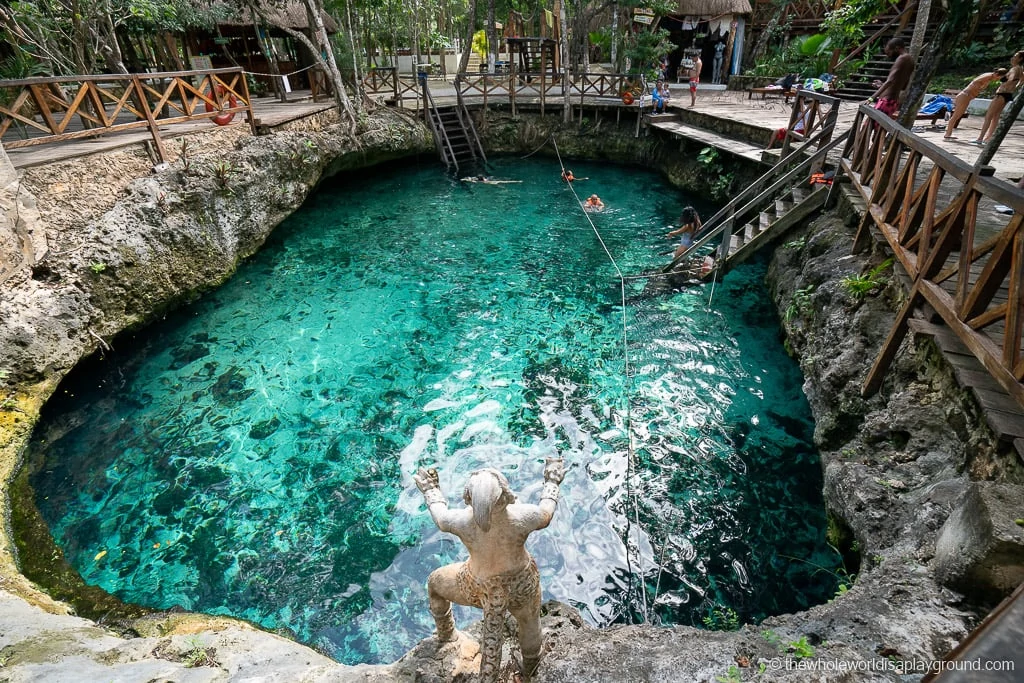
Semi-open cenotes
These cenotes are mostly underground but have small openings in the ceiling where light and fresh air come in. These cenotes can be particularly beautiful as the light beams illuminate the crystal clear water below. Our favorite semi-open cenote is Cenote Ik Kil which can be visited as part of a day trip to Chichen Itza and Cenote Samula, a cenote near Valladolid.
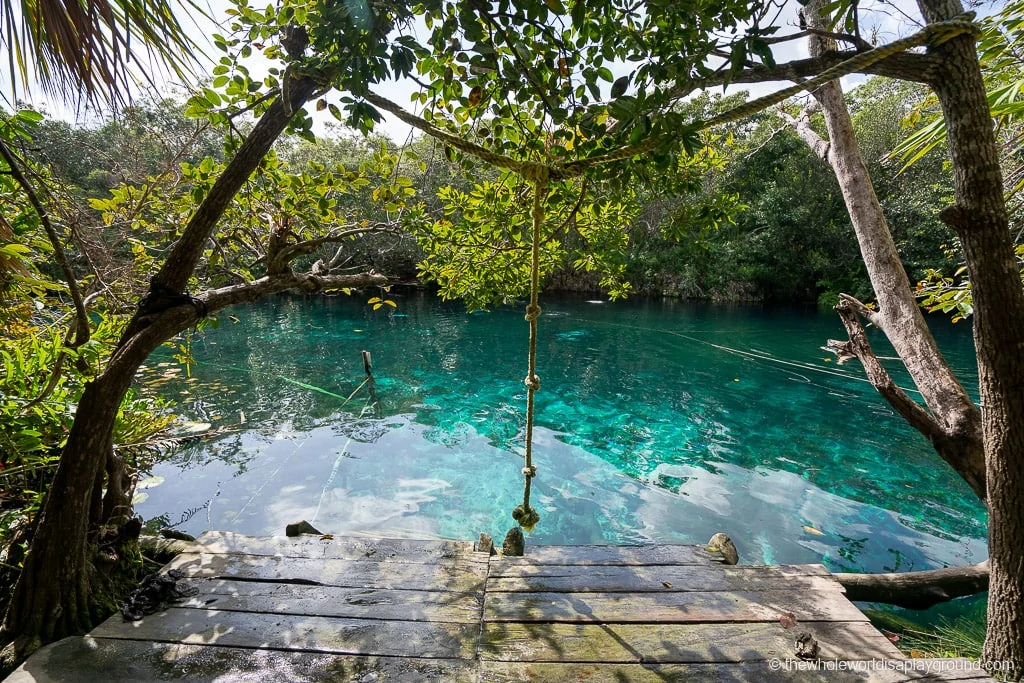
Underground cenotes
These cenotes are completely underground in a cave system and have no natural light to illuminate the cenote water. The three cenotes near the Coba ruins (Cenote Choo-Ha, Multum-Ha and Tamchach-Ha) are amazing underground cenotes you can easily visit from Playa Del Carmen on a longer stay.
Visiting Gran Cenote
The ticket office for Gran Cenote is located adjacent to the car park. After paying the entry fee ($500 pesos in January 2025) it is necessary to take a shower before entering the water: this is standard practice at all of the cenotes on the Yucatan Peninsula to protect the cenote ecosystem.
The cenote is accessed via a T shaped wooden boardwalk with each path leading to the cenote waters.
A river like open-air cenote surrounds the boardwalk and is flanked by two snorkeling pools on either side of the cenote. We spent some time swimming in the open air and then exploring the caverns.
Gran Cenote tip: there are often bats on the ceiling of the caverns. It’s best to avoid this route if you don’t want to swim under the bats!
To fully explore the caves, visitors need to sign up for a dive. However, Gran Cenote is unique in that it offers snorkelers the opportunity to catch a glimpse of the underwater rock formations and experience the light rays piercing through the opening in the cenote.
Gran Cenote tip: there are two sets of staircases leading down to the cenote waters. For hanging out and relaxing, we preferred the pool at the end of the second set of stairs as it was quieter and more relaxed
After swimming in the waters of Gran Cenote, make your way to the open lawn to dry off in the warm Tulum sun. There are also hammocks available if you are lucky enough to grab one!
Tips for Visiting Gran Cenote
Below are our tips to help you make the most of your time at Gran Cenote.
1 | How to get to Gran Cenote
Located 5km from Tulum, Gran Cenote is easily accessible from the town and is also a great inclusion in a to a Tulum or Coba day trip.
Rental Car
A rental car is the easiest way to get to all of the cenotes in Mexico. We rented a car for our time in the Yucatan and highly recommend it to our readers. Renting a car in Cancun, Mexico was very straightforward and driving was easy. The roads are of good quality, the drivers are nice and the traffic is relatively light – check prices now!
Colectivo (local taxi-buses)
The Tulum to Coba colectivo passes by Gran Cenote, just tell the driver where you want to disembark.
If you are traveling by Colectivo from Playa Del Carmen, take a taxi or a second Colectivo in the direction of Coba when you arrive in Tulum. Colectivos leave from 2 street in Playa Del Carmen.
Taxi
It’s also possible to get a taxi to Gran Cenote from Tulum. It’s a quick trip so shouldn’t cost a lot. You can call a return taxi from the ticket office when you’re finished.
Scooter/ Bike
It’s a 30 minute bike ride from Tulum to Gran Cenote.
2 | How much does Gran Cenote cost
Tickets to Gran Cenote cost $500 pesos in 2025 and is cash only. Extra costs include
- life jackets: $50
- snorkels: $80 pesos
- lockers $30 pesos
We recommend having cash (preferably Mexican pesos) with you when visiting all the cenotes in Mexico and Gran Cenote is no exception. These prices can vary so they may differ when you visit.
3 | Gran Cenote Opening Hours
Opening hours: Gran cenote is open from 8:10 am. Last entry is at 4:15 pm for the cenote closing at 4:45 pm.
4 | How long to spend at Gran Cenote
We spent around 2 hours at Gran Cenote. If you bring food, it’s possible to spend a morning or afternoon swimming in the waters and relaxing on the lawns surrounding the cenote.
Gran Cenote tip: We also visited the Coba ruins on the same day and stopped on our return to Tulum.
5 | Best Time to Visit Gran Cenote
Like most cenotes in Mexico, it’s best to visit Gran Cenote in the morning on a weekday. This way you avoid the weekend crowds when locals and tourists descend on the cenote.
Gran Cenote tip: we visited on a weekday afternoon and the crowds were high.
6 | What’s not allowed in the Gran Cenote
As we mentioned above, visiting the cenotes is a little different from a traditional swimming pool so there are some different rules to follow when visiting. Gran Cenote rules were as follows:
- Showers – You are required to take a shower before you swim
- Sunscreen / Mosquito repellent: You are not allowed to wear sunscreen or mosquito repellent before you enter the water at the cenote. This is to preserve the quality of the water for everyone.
7 | Jumping
Gran Cenote is shallow along the boardwalk entry points and there are no opportunities to jump or dive in.
Facilities at Gran Cenote
Gran Cenote has pretty good facilities
8 | Changing rooms and lockers
There are bathrooms, lockers and changing rooms available. Lockers cost $30 pesos to rent. At less busy times you can bring some things down to the cenote.
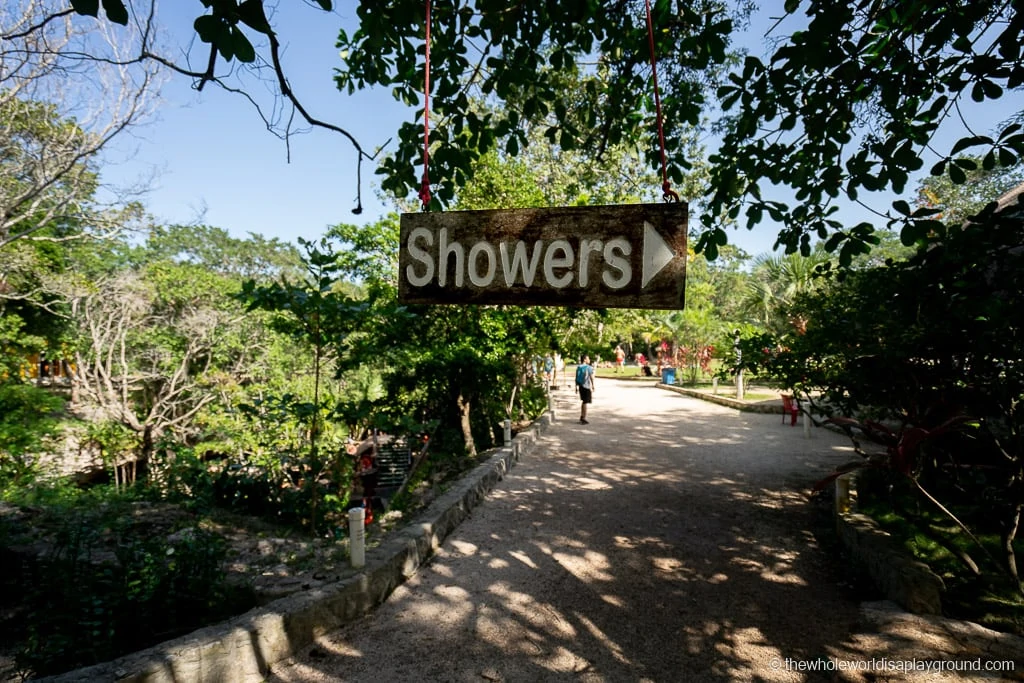
9 | Life Jackets
Life jackets are available to rent for $50 pesos along the wooden boardwalk leading to the cenote waters.
10 | Parking
There was a large parking lot at Gran Cenote with plenty of spaces even at busy times.
11 | Food and Drinks
There is a stall selling snacks and drinks at Gran Cenote but there is no on-site restaurant.
Gran Cenote tip: visitors are allowed to bring their own food into the cenote grounds and there are picnic tables available.
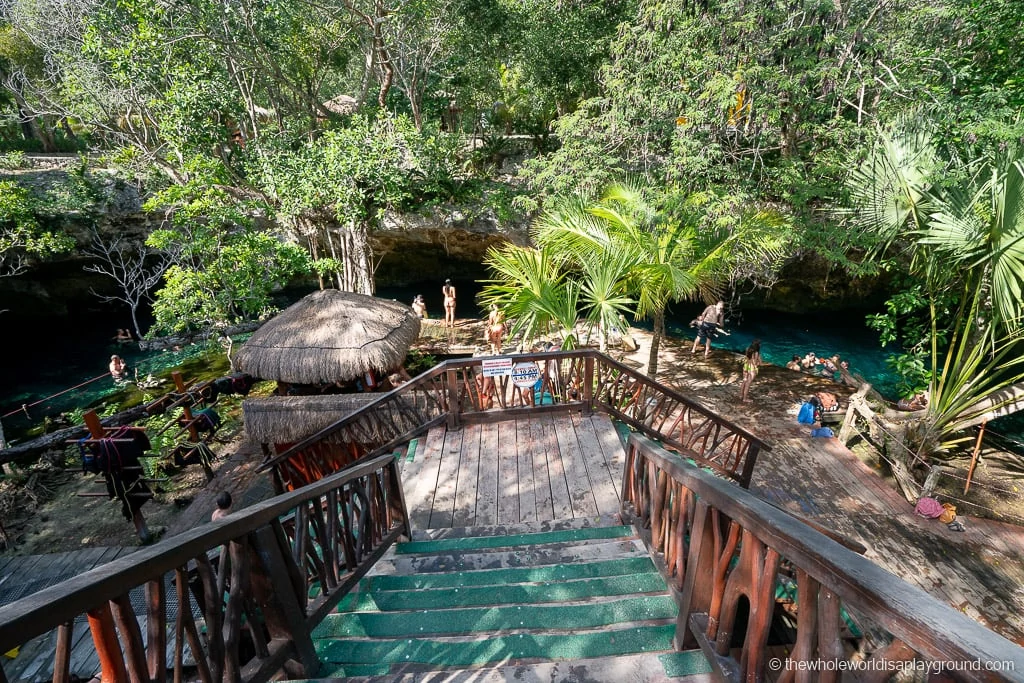
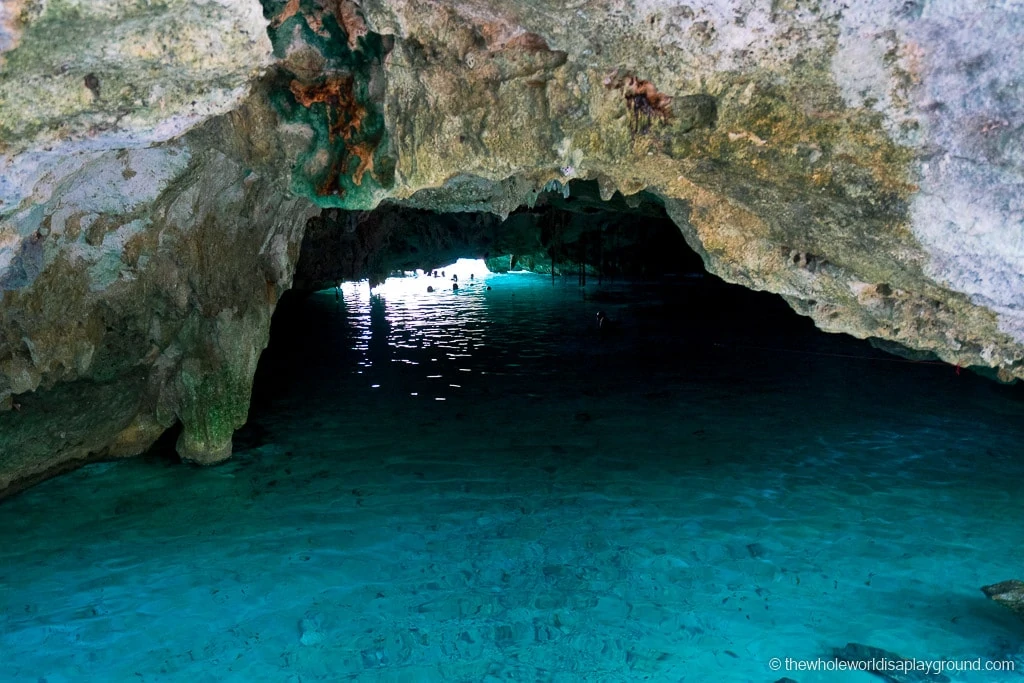
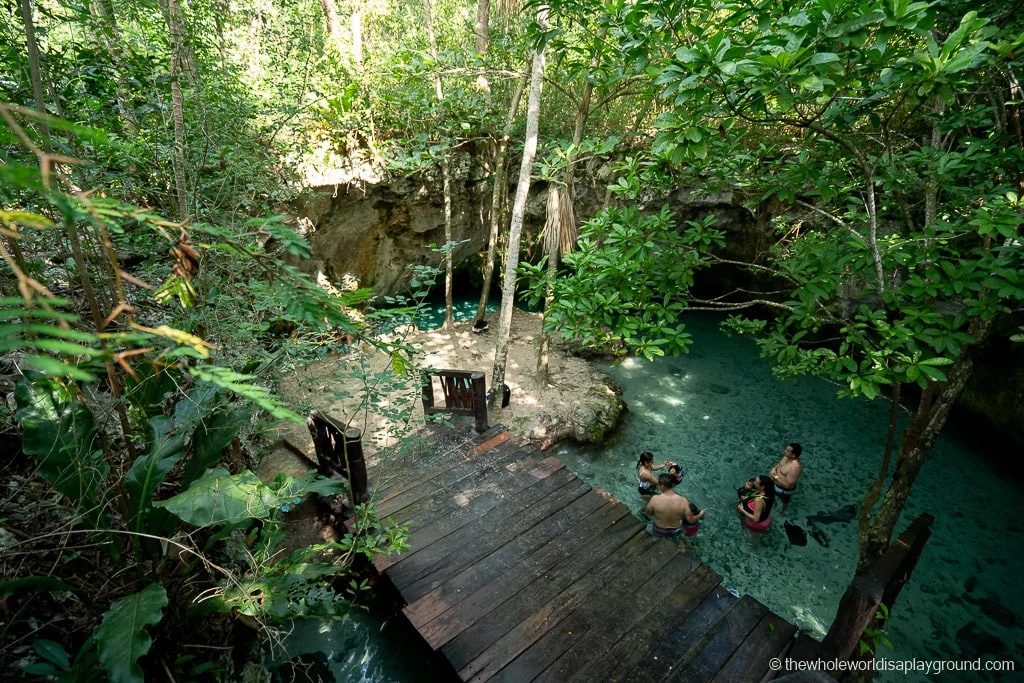
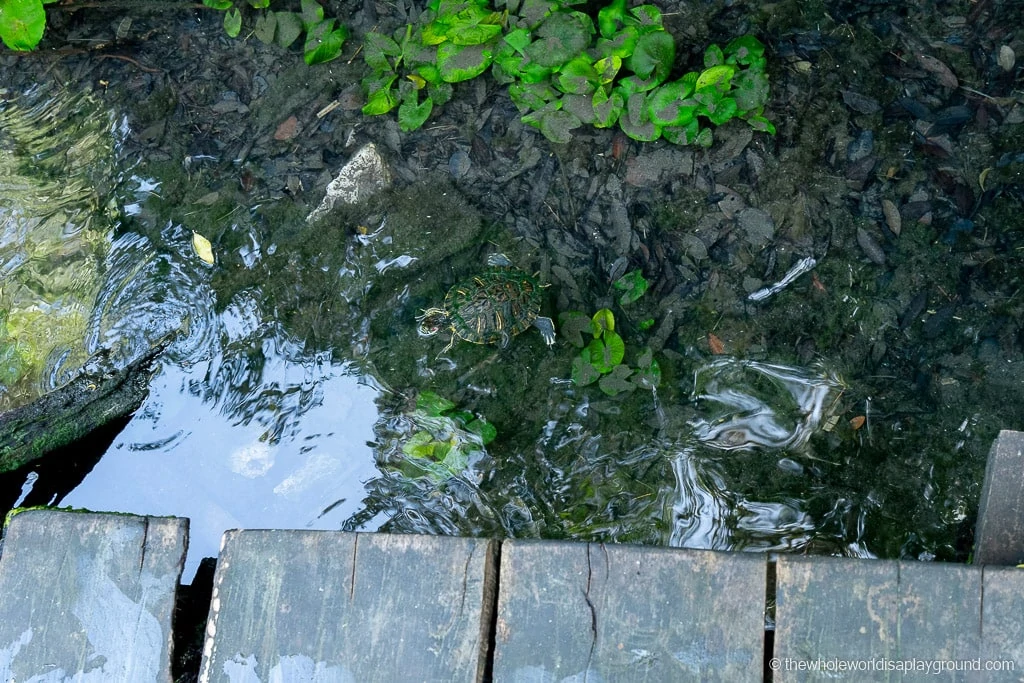
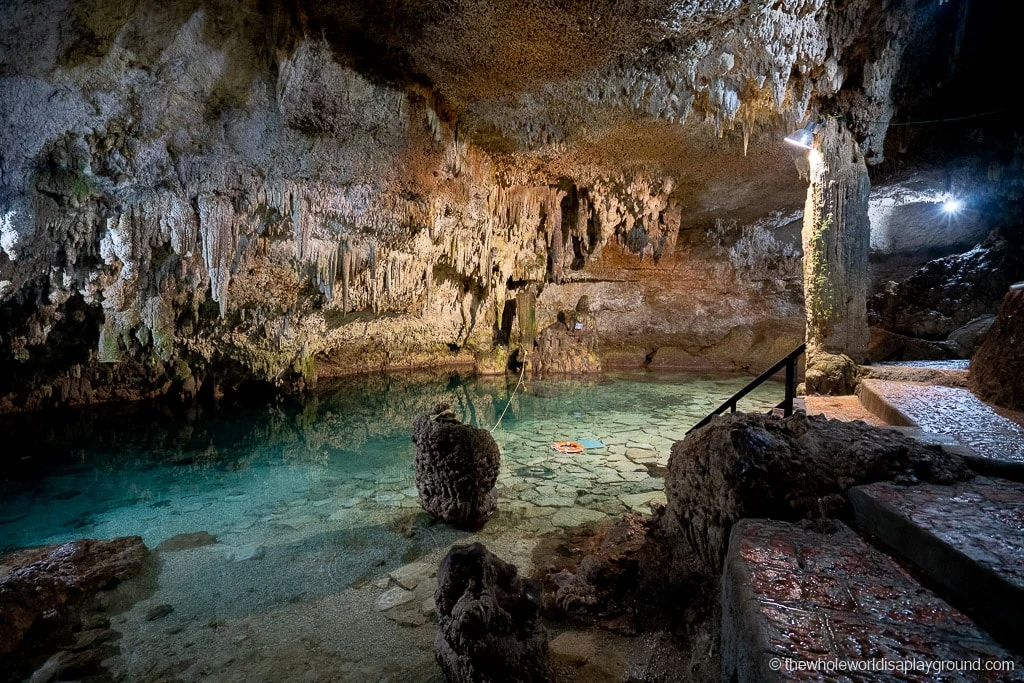
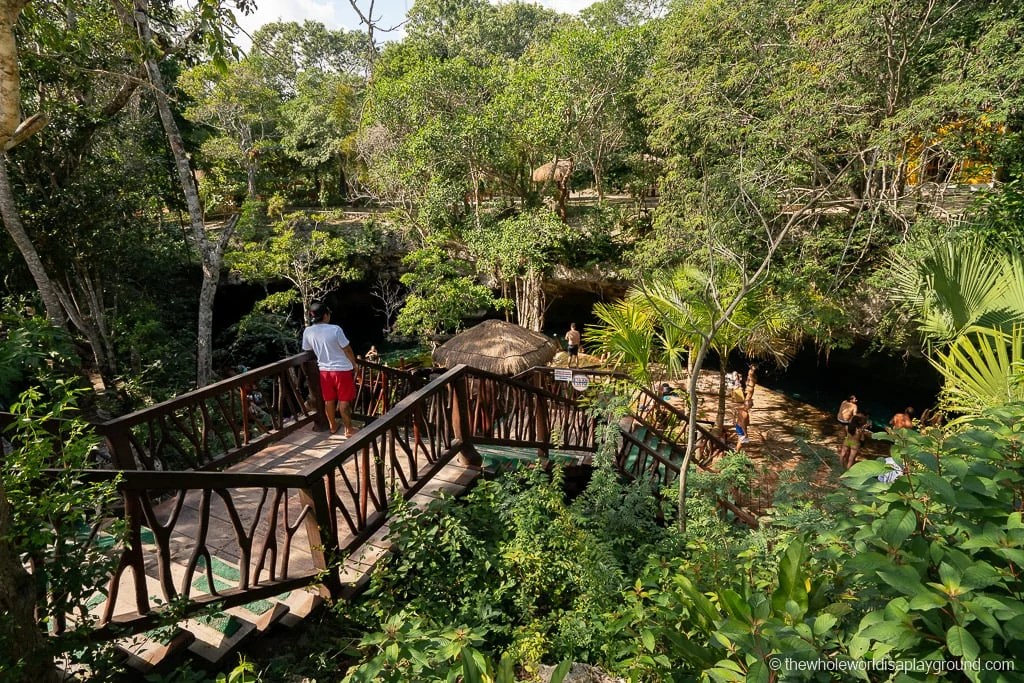
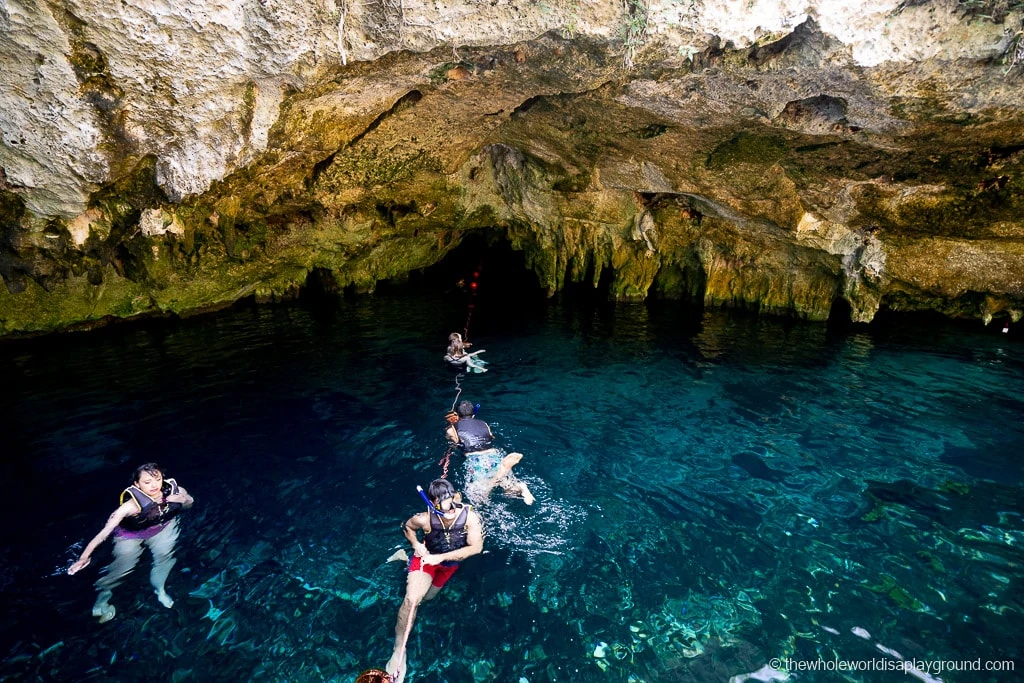
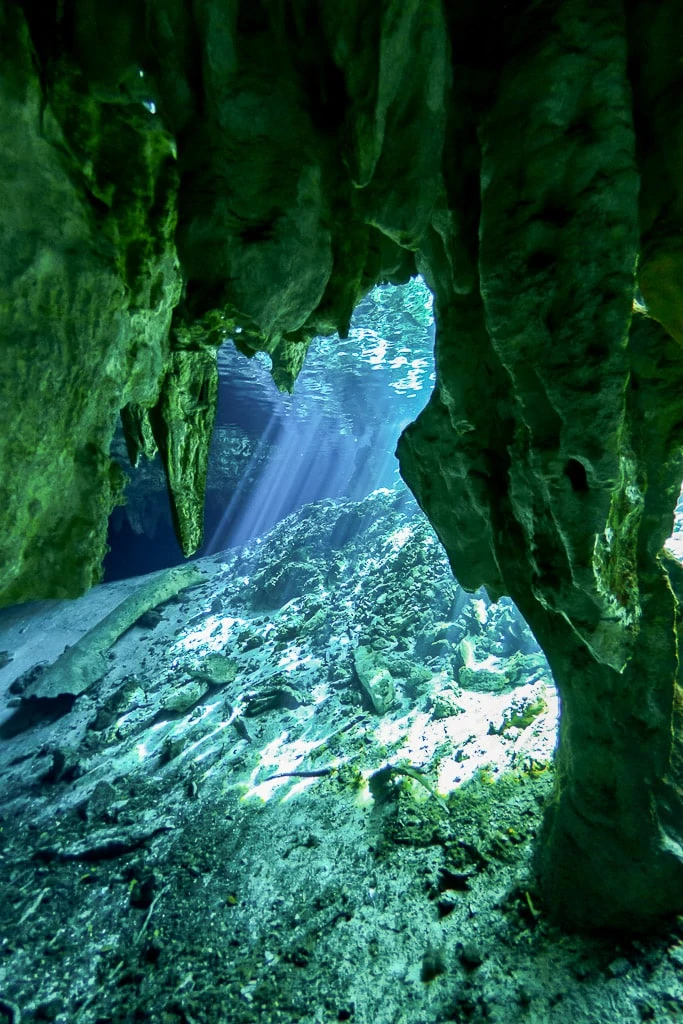
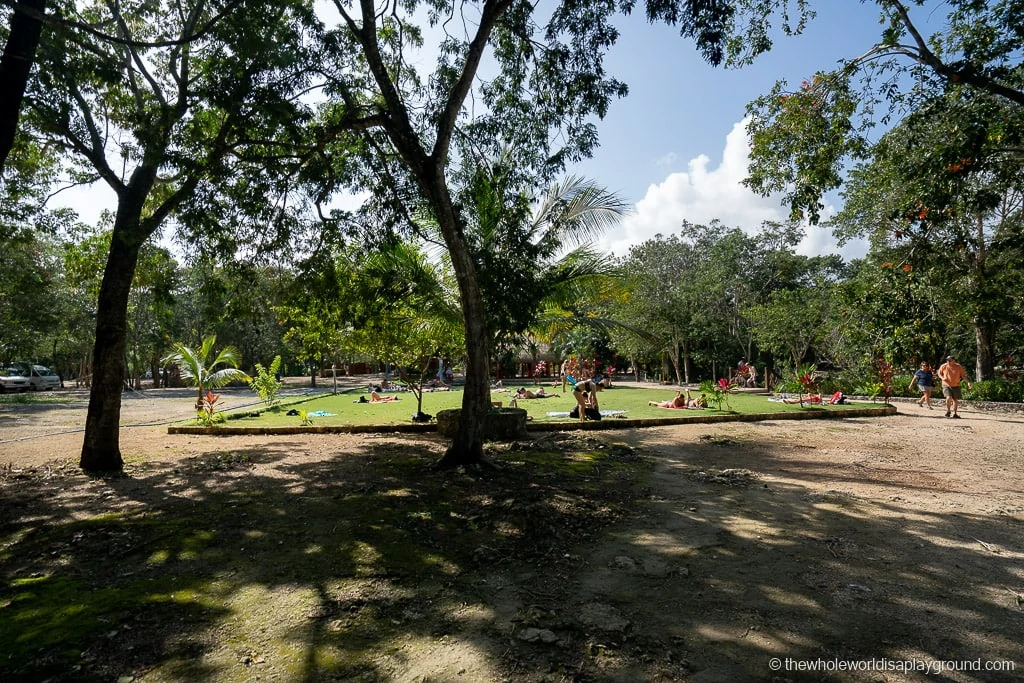
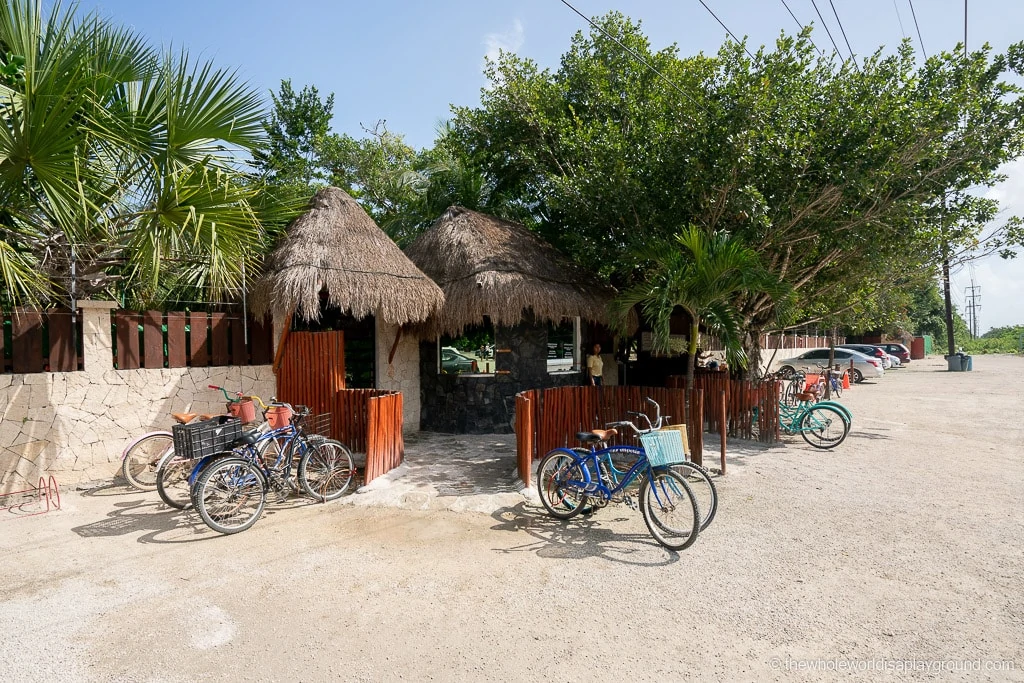
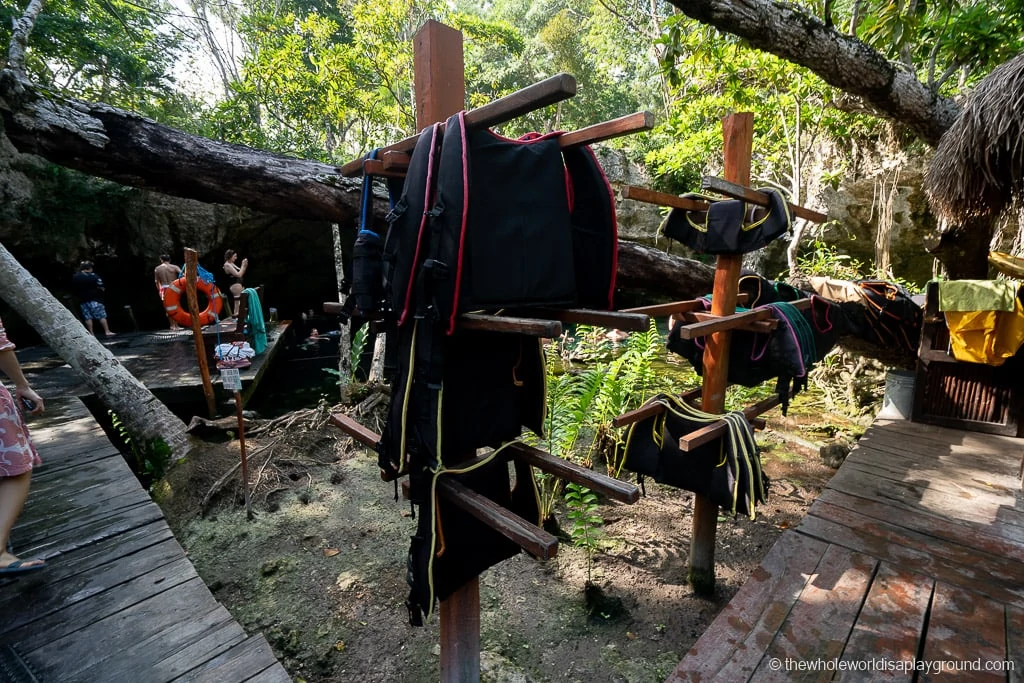
The admission is now 500 pesos, only cash.